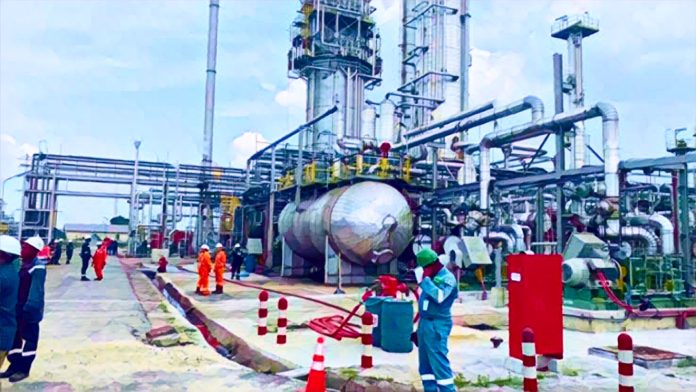KEY POINTS
- Port Harcourt Refinery resumes loading petrol after a one-week pause.
- Limited loading activity observed; only 3 of 18 arms operational.
- Marketers urge government to ensure the refinery operates fully.
After a week-long pause, the Port Harcourt Refining Company has resumed the trucking out of Premium Motor Spirit (PMS), also known as petrol.
On Monday, operations restarted with 11 trucks loading PMS at the depot, although activity levels remained subdued.
The Chief Corporate Communications Officer of the Nigerian National Petroleum Company Limited (NNPC), Olufemi Soneye, confirmed that preparations for loading operations were underway.
By the afternoon, trucks began driving into the loading bay, with the first truck lifting petrol at 1:18 p.m. By 4:30 p.m., 10 trucks had successfully loaded PMS, and more were expected before the day’s end.
Limited operations raise concerns
Despite the resumption, marketers expressed frustration over the slow pace of activity.
Of the 18 arms in the loading bay, only three were operational, a fact that marketers said hindered the depot’s capacity to meet demand.
“This place should be full of trucks, and up to 50 trucks could load by 6 p.m. if operations were running fully,” said Liti, a marketer at the depot.
The limited functionality has led to calls for government intervention to ensure the refinery operates at full capacity.
According to Punch, marketers also pointed out that some arms in the loading bay are designated for kerosene and diesel, which the refinery has yet to produce.
Marketers call for full refinery operations
Marketers at the depot emphasized the need for a reliable and consistent operation at the refinery, highlighting how the frequent shutdowns and underutilized facilities disrupt their businesses.
“We are not happy with the frequent shutdowns and lack of functional loading arms,” another marketer said.
The resumption of petrol loading is a step forward, but stakeholders stress the importance of addressing operational challenges to fully restore confidence in the refinery’s capacity to meet fuel demands.



